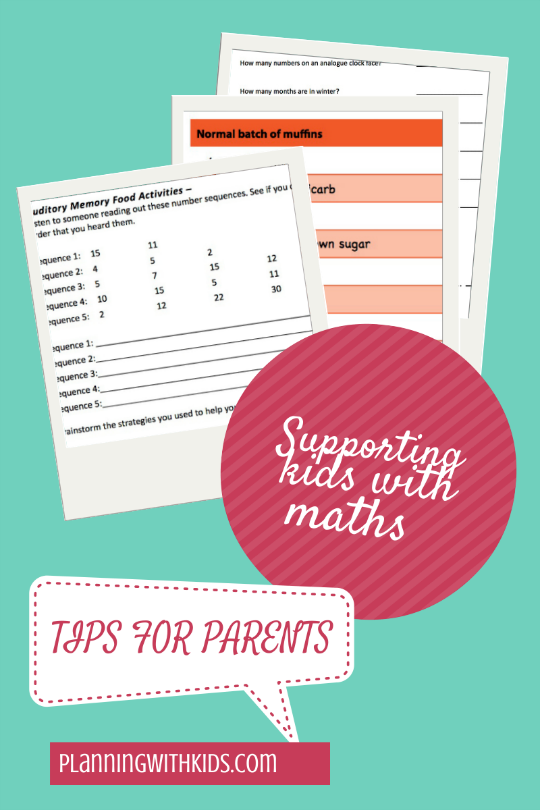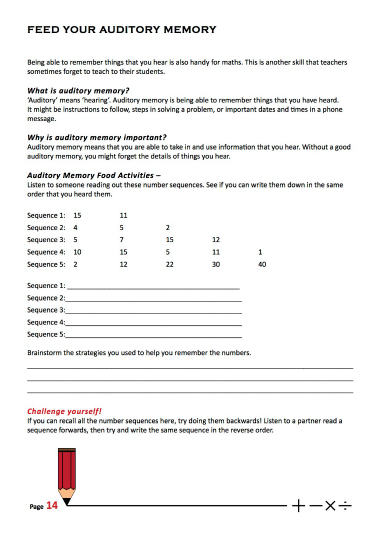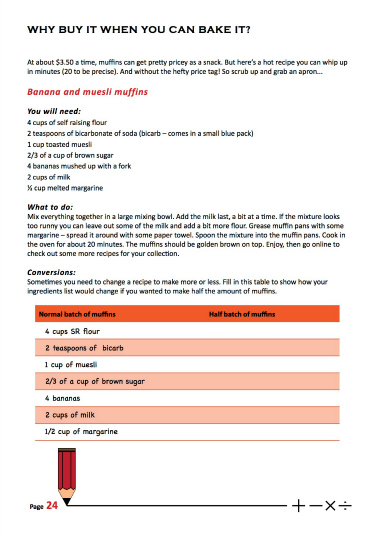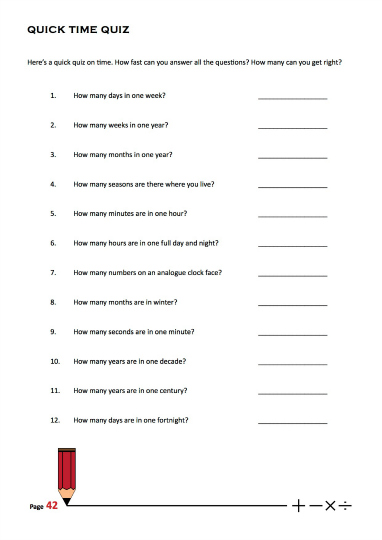
This week on the blog I will be featuring posts on the theme of supporting kids’ learning. You can read other posts in this series here:
Today’s post is by Anne Vize. Anne is an educational author and former special needs teacher who specialises in writing for and about children with additional needs. Anne shares how to help kids who may be finding maths a struggle and to help parents she has also allowed me to share a few worksheets from her book that you can use at home with your children.
***********
‘Oh no, not maths again!’
Sadly, for many young people across the country, maths is not a subject which excites and inspires but rather is something which causes stress and anxiety. Mastering maths can seem like an impossible challenge for those children who struggled to grasp the basics in their early years at school, or who have experienced difficulty with maths for other reasons.
So why do some children struggle with maths?
Sometimes children who struggle with maths might have additional needs such as an intellectual or learning disability, be learning English as an additional language, or have missed significant periods of their schooling due to illness or travel. Some may have a condition known as dyscalculia, which makes learning and retaining maths and numeracy skills extremely difficult.
Children with dyscalculia can have trouble with skills such as memorizing times tables or performing calculations which work in a backwards direction, such as subtraction tasks. They also tend to have difficulty with using their working memory to keep facts or signs in their head whilst they read the rest of a question, or remember which steps to perform next in a process and which they have already done.
They might experience difficulty visualizing objects such as three dimensional shapes and imagining what might happen if these objects are turned or transformed in some way. This makes answering questions related to space and transformation quite difficult. Skills which appear to have been learnt and understood one day can also appear to vanish just as quickly the next, leaving everyone feeling frustrated and puzzled.
And so the frustration builds…
As the rest of their class moves forwards, often these children continue to struggle and can becoming increasingly frustrated with their inability to retain skills and progress with their peers. This can lead to acting out in class, failure to attend, personal frustration and distress and a decrease in self esteem and confidence. It is critical to identify when a child is struggling to keep pace with their peers and the expected learning outcomes, and do something about it.
You might ask the teacher to do some extra assessments to work out the particular problem areas. This could assist in really targeting what is causing problems for the child, and can help make any extra support work more effective.
You could also look at some out of hours tutoring to build skills and reinforce what has been learnt at school. Take your time here, and make sure you find a reputable and experienced tutor, preferably with a background in teaching children with specific difficulties.
You could also ask your child to work with you to plan their maths homework activities in a way which reduces their frustration and stops every home session becoming a battleground of ‘I’m not doing it!’ or worse still, ‘I’m dumb and I CAN’T do it!’
Practical maths
Maths sometimes seems to have more meaning for children if it has real relevance to their daily lives. This can also reduce the pressure and stress element as maths simply becomes a part of everyday activities rather than a planned, scheduled activity.
Try building maths into a cooking session, songs you sing in the car or on a walk, or when you visit the supermarket or green grocer shop. You could also check out some games and activities that incorporate maths, like Snakes and Ladders or building with blocks or planks.
For young children, songs like ‘one, two, buckle my shoe’ can be fun, and for older children, activities such as making pancakes or weighing a bag of apples on the scales in a shop provides a great chance to use maths vocabulary in everyday life.
These worksheets show how you can apply maths to everyday situations around the home. Click on each image to download a full size version to print out and use.

Feed your auditory memory

Cooking maths – muffin recipe

Quick time quiz
About the author
Anne Vize is a special educator and freelance author who has worked with and written extensively for young people with lower literacy and numeracy skills. ‘Real World Maths – building skills for diverse learners’ is available as a full colour PDF e-book or a traditional black and white print book. Copies are available online from:
- Admark Education http://admarkeducation.com/Realworldmaths.htm
- Authors Unlimited https://authors-unlimited.org/book-member/real-world-maths
How do you build maths into your days for the kids?
